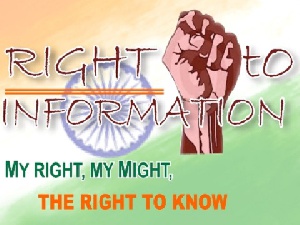Media practitioners in the Western Region have been urged to use their platforms to help educate the public on the Right To Information (RTI) bill.
Mrs Linda Ofori-Kwafo, Executive Director of Ghana Integrity Initiative (GII), said this was to ensure that when the RTI bill is passed into law it's usage would be easier.
She made the call in Takoradi at a day's training programme on the RTI bill for more than fifty journalists in the Western Region.
Mrs Ofori-Kwafo said the regional sensitization on the RTI bill for this year, was organized by GII together with the RTI Action Campaign and RTI Coalition and was been implemented under the Accountable Democratic Institutions and Systems Strengthening (ADISS) project.
Topics that were treated include 'principles of the RTI bill', 'walk through the RTI bill 2018 and RTI Bill’: 'Where are we now and opportunities for civil society inputs going forward'.
The Executive Director of GII emphasized that they would tour the ten regions across the nation to ensure that civil society organizations become abreast with the content of the RTI bill.
She called on the media to solidly back them to ensure that the RTI bill which has been before Parliament for seventeen years becomes a law.
Speaking on the principles of the RTI bill, Mr Seth Abloso, Chairperson of RTI Coalition, explained that the cost for seeking information should not be so high as to deter people from accessing the information request.
He said the cost should only be for reproduction, translation and transcription.
Mr Abloso said information was time sensitive and should be accessed within a reasonable time and added that excessive long timeliness defeats the purpose of the RTI.
He noted that all exempt information should be subjected to the harm test.
He stressed that "The Harm Test Principle states that information should be disclosed if the benefit of disclosure outweighs the harm that the disclosure will cause".
According to Mr Abloso all requestors have the right to appeal the decision by the public institution to refuse or deny access to information.
General News of Thursday, 7 June 2018
Source: ghananewsagency.org

















